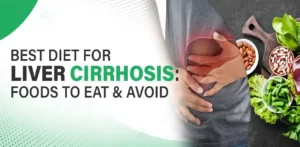Contents
- 1 The Importance of an Obesity Diet
- 2 Foods for Weight Loss
- 3 Nutrition for Obesity Management
- 4 Obesity-Friendly Meals
- 5 Diet for Obesity Control
- 6 Obesity Nutrition Tips
- 7 Best Foods for Weight Loss
- 8 Obesity Nutrition Therapy
- 9 Obesity-Friendly Recipes
- 10 Obesity Meal Ideas
- 11 Ordering Healthy Food from IntRest
Obesity is a complex health issue affecting millions worldwide. It’s not just about carrying excess weight; it’s a condition that increases the risk of various serious health problems, including heart disease, diabetes, and certain cancers. The good news is that obesity is manageable and can often be reversed through a combination of dietary changes, physical activity, and lifestyle modifications.
The Importance of an Obesity Diet
An effective obesity diet is tailored to meet the unique nutritional needs of individuals looking to lose weight and improve their health. This diet focuses on foods that promote weight loss, support overall health, and are easy to incorporate into daily meals.
Foods for Weight Loss
The best foods for weight loss are those that are nutrient-dense and low in calories. Here are some top choices:
- Fruits and Vegetables: Rich in fiber, vitamins, and minerals, fruits and vegetables help you feel full while providing essential nutrients.
- Lean Proteins: Foods like chicken, turkey, fish, beans, and legumes are excellent for building muscle and keeping you satiated.
- Whole Grains: Brown rice, quinoa, and whole wheat products are great for sustained energy and fiber intake.
- Healthy Fats: Avocados, nuts, seeds, and olive oil provide essential fatty acids that help with hormone production and overall health.
Nutrition for Obesity Management
Managing obesity involves more than just cutting calories. It’s about adopting a balanced approach to nutrition that supports weight loss and overall well-being. Here are some key aspects to consider:
Obesity-Friendly Meals
Creating obesity-friendly meals means focusing on portion control, nutrient balance, and including a variety of food groups. For instance:
- Breakfast: A smoothie with spinach, berries, Greek yogurt, and a handful of nuts.
- Lunch: A quinoa salad with mixed greens, chickpeas, avocado, and a light vinaigrette.
- Dinner: Grilled salmon with steamed broccoli and sweet potato.
Diet for Obesity Control
A well-planned diet for obesity control includes regular meals and snacks that prevent overeating and help maintain stable blood sugar levels. Here are some tips:
- Regular Eating Schedule: Eating small, balanced meals every 3-4 hours can prevent hunger and reduce the temptation to overeat.
- Hydration: Drinking plenty of water is crucial for metabolism and can help control hunger.
- Mindful Eating: Paying attention to what and how much you eat can make a significant difference. Avoid distractions like TV or phones during meals.
Obesity Nutrition Tips
Implementing practical obesity nutrition tips can enhance the effectiveness of your weight loss efforts. Consider the following:
- Fiber-Rich Foods: Fiber helps you feel full longer and can improve digestive health. Include plenty of vegetables, fruits, and whole grains in your diet.
- Protein Intake: Protein can boost metabolism and reduce appetite. Include lean protein sources in every meal.
- Healthy Snacks: Opt for snacks like nuts, seeds, fruits, or yogurt instead of processed snacks.
Best Foods for Weight Loss
Certain foods are particularly beneficial for weight loss due to their nutritional profiles:
- Berries: Low in calories but high in fiber and antioxidants.
- Leafy Greens: Low-calorie, nutrient-dense, and can be used in a variety of dishes.
- Fish: Especially fatty fish like salmon, which is high in omega-3 fatty acids and protein.
- Eggs: High in protein and healthy fats, eggs can keep you full for longer periods.
Obesity Nutrition Therapy
Nutrition therapy for obesity involves personalized dietary plans created by dietitians to help individuals achieve their weight loss goals. This therapy considers the person’s medical history, dietary preferences, and lifestyle to create a sustainable eating plan.
Obesity-Friendly Recipes
Creating delicious and obesity-friendly recipes can make healthy eating more enjoyable. Here are a few ideas:
- Veggie Stir-Fry: A mix of colorful vegetables sautéed with tofu or chicken and a light soy sauce.
- Overnight Oats: Oats soaked in almond milk with chia seeds, topped with fresh berries and a drizzle of honey.
- Stuffed Peppers: Bell peppers stuffed with quinoa, black beans, corn, and spices, baked until tender.
Obesity Meal Ideas
Planning your meals ahead of time can help you stay on track. Here are some obesity meal ideas for different times of the day:
- Breakfast: Greek yogurt with a handful of nuts and a piece of fruit.
- Lunch: A wrap with whole grain tortilla, lean turkey, lettuce, tomato, and a dollop of hummus.
- Dinner: Baked chicken breast with a side of roasted vegetables and a small portion of brown rice.
Ordering Healthy Food from IntRest
Managing obesity through diet requires consistency and convenience. IntRest simplifies this process by allowing you to order healthy, customized meals based on your dietary needs, illnesses, diet, and allergies. Whether you’re looking for obesity-friendly meals, specific diet plans, or allergy-conscious options, IntRest has you covered. Simply search for “healthy food near me” or “restaurant near me” on the IntRest site to find tailored meal options that support your journey to better health.



